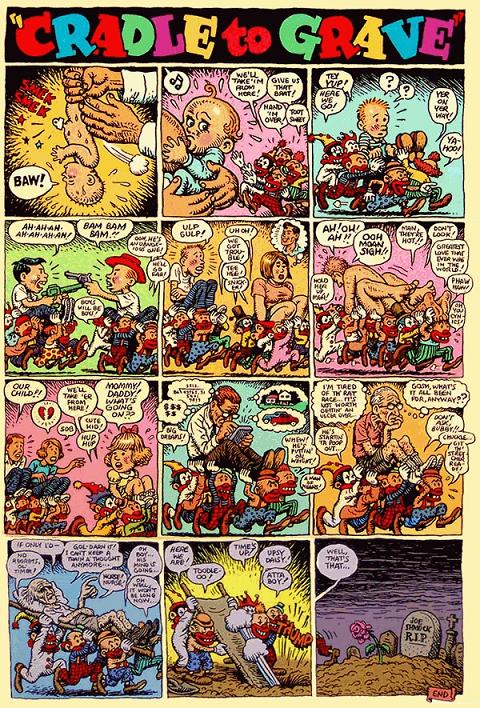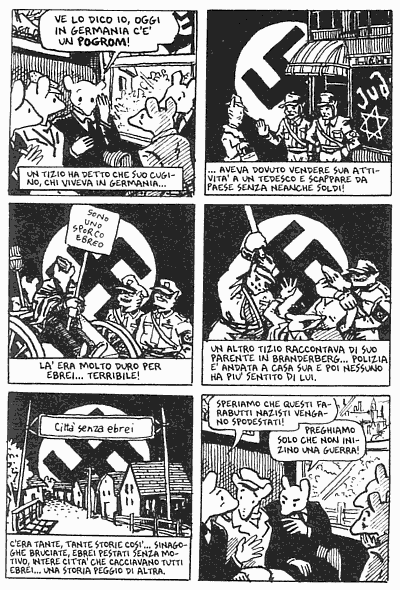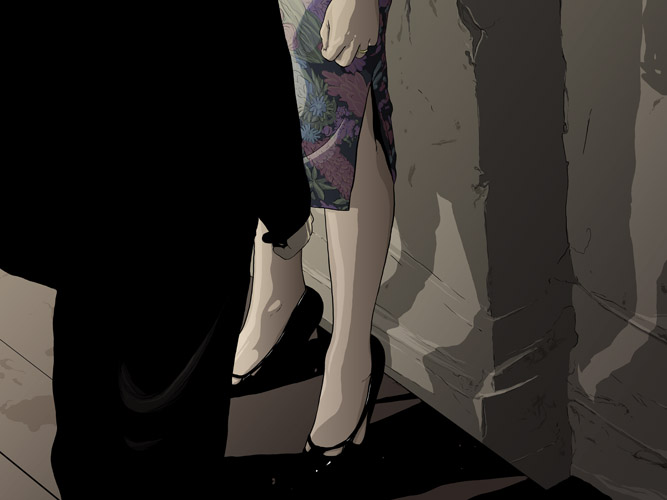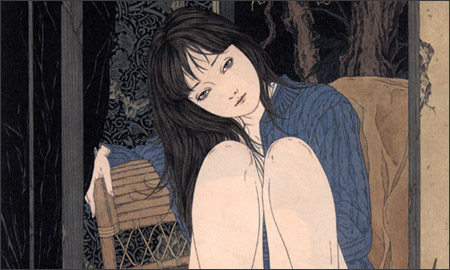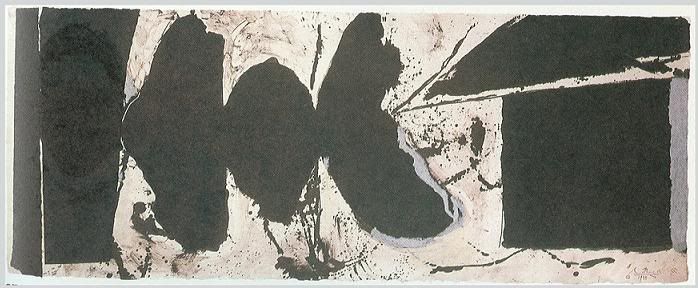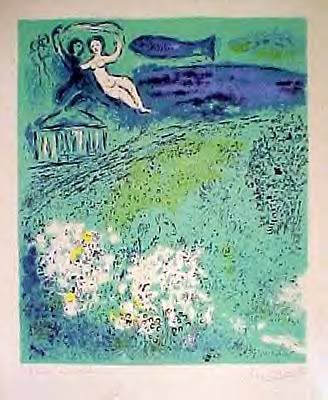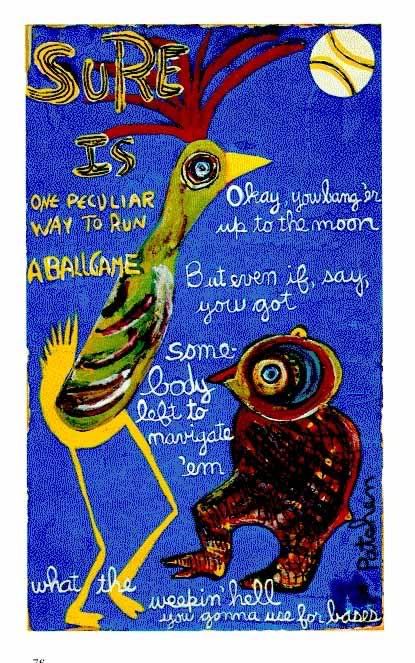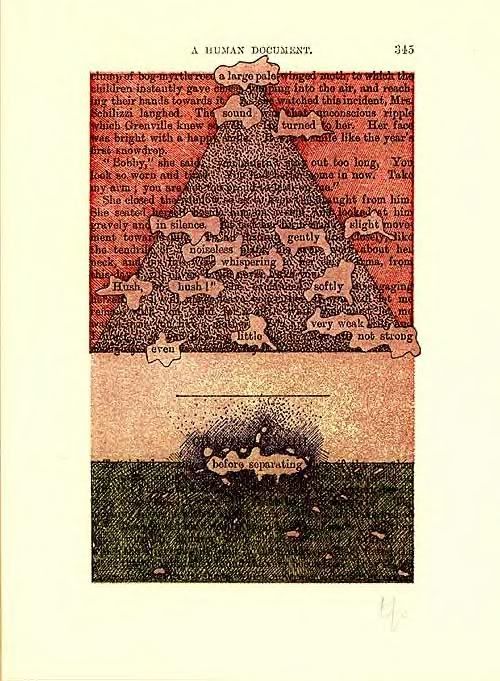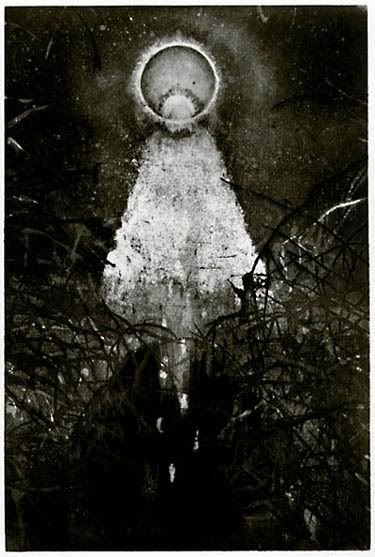Well I do get what you mean, but let me add something here. It's that I don't think conceptual art is (should be) easier to master, in fact, I think it is (or should be) harder...
I agree that conceptual art done well is not easy to do. It demands a sensitivity to the materials and objects that the artist has chosen to recontextualize so that the result is not without a concern for aesthetics (or dare I say "beauty", and resonates with multiple layers of possible meaning. Among some truly fine works of conceptual art I would certainly include:
Meret Oppenheim's Object which plays with allusions to touch and taste and surreal intimations of sexuality:
Man Ray's simple Violin d' Ingres:
Joseph Cornell's poetic shadow boxes... including the Magnificent De Medici Slot Machines:
Ed Kienholtz' harrowing State Mental Hospital where goldfish bowls replace the face/minds of the inmates who can only imagine (as in the neon dream bubble) more of the same:
The reality is that much of the finest "conceptual art" is created by artists utilizing craft skills outside of the usual drawing/painting/sculpture/print experience. In a manner these artists bring to the art world that outside influence of which JBI has spoken as being necessary to infuse an old tradition with new energy. Martin Puryear, an African-American sculptor living in rural Pennsylvania studied with master woodworkers and furniture craftsmen in Scandinavia before bringing these sensibilities to the non-utilitarian world of art:
Ron Meuck built upon the skills he mastered in creating special effects for the film industry using modern polymers, latex, foam, etc... in creating his unsettling hyperrealist sculptures:
Still other artists, dating back to Richard Smithson's Spiral Jetty have utilized only natural materials creating works that remain in nature and that eventually will erode:
Perhaps the most interesting contemporary earth artist is Andy Goldsworthy... whose work has an almost Japanese Zen quality to it:
All of his works are created on the spot and left to the elements... sometimes lasting but a few moments. Only the photographic records remain:
In a variation on earth art there is Richard Greaves' "anarchitecture"... buildings constructed of materials claimed from collapsed homes... put together without the use of any nails, screws or other artificial means they are essentially a version of a house of cards:
Even the book has become a source of conceptual art... scribbling and doodling in these instances:
What's easier is to fake or give the illusion of great art by playing on the ignorance of the public and it's will to appear sophisticated, or simply living in the illusion of doing great art, because of the general example.
Bitterfly- Stlukesguild, it's rather reassuring to hear a specialist saying that contemporary art isn't that interesting. Because, as Etienne says, there's always that wish to appear sophisticated and therefore to shut up when you think you're viewing crap, and not at all great art. I've recently started to air my real thoughts, when I go to see a show that obviously takes its public for a bunch of fools, but it's hard not to go with the stream. And there's always a risk that you've really misunderstood the artist.
While I largely bristle at the use of the old analogy to the "Emperor's New Clothes"... which is largely thrown out by those without the least understanding or appreciation of art post-Impressionism... there is something of that involved today. There is a gross amount of money invested in the arts... but the pool of what is available has continually shrunk. Even Bill Gates... with all the wealth he has at hand... could not possibly build an art collection to rival the Frick Museum (for example). There are simply not that many masterful works by old masters still in private hands. For this reason prices of Impressionism and Modernism and even contemporary art have spiraled beyond all reason. As any artist knows... in most cases the production of art is a slow... deliberate process. Large paintings by Rubens or Velasquez often demanded months of labor. Vermeer created all of 40 paintings in his life. Rembrandt may have painted as many as 400. Dealers now want artist who can turn out 50 or 100 new large works a year... thus fueling demand. Very few critics are going to come out and tell you how bad much of the work is... not when their salaries come from the advertising dollars paid by the dealers to the very publications for which they are employed. The few exceptions, such as Robert Hughes and Donald Kuspit generally write for magazines not dependent upon gallery support (Time, Newsweek), newspapers, and/or are employed through universities.
I do think that art today ought to be something else than what can be done through photographic means, for example, and in this respect a degree of conceptualism is needed, but as a mean to extend boundaries, and not to reduce art to "mere" conceptualism.
Yes... I agree there should be a place for everything. But then my initial comments were about the manner in which many of the supporters of conceptual art would not have it that way. Sean Scully, one of the leading contemporary abstract painters, admitted that he once thought that such art could co-exist peacefully... but now he states that for the artist it has become an either/or position.
JoZ- I am more accessible to pink sharks suspended in tanks and glittering madonna's partly sculpted in elephant dung than luke or bitterfly or you might be. Crass commercial materialism can teach as much as neo-classical reverence does, in my book.
JoZ... believe it or not I am far less conservative as an artist than you might suppose. However, I have no place for Hirst's shark suspended in formaldehyde (all graciously funded by Charles Saatchi) nor Chris Ofili's Sh** Madonna and Sh** Christ... Las Vegas sequins mounted on giant elephant turds and passed off as conveying some deep spiritual meaning. If I wish to learn from crass commercialism I have no lack of access to the internet, Hollywood, billboards, TV, etc... Fine artists who attempt to take on popular culture at its own game are simply ridiculous. They remain popular, however, because we have endless millionaires and even billionaires who made their money in real estate, oil, junk bonds, or the tech industry... but know nothing about art. They do know, however, that they loved Scooby Doo and Batman when they were kids.



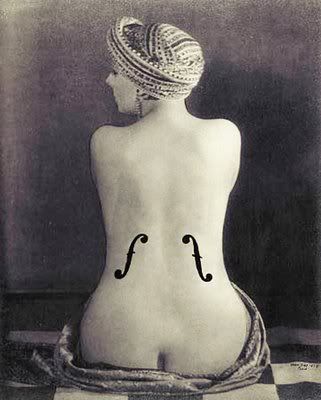
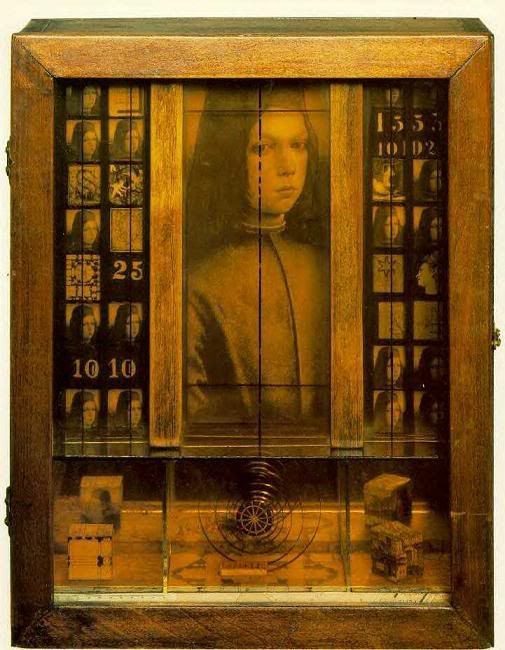
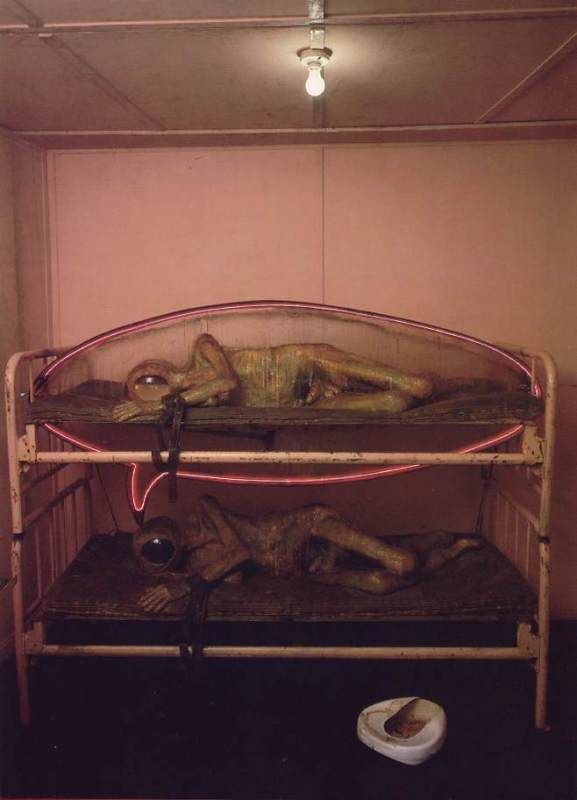

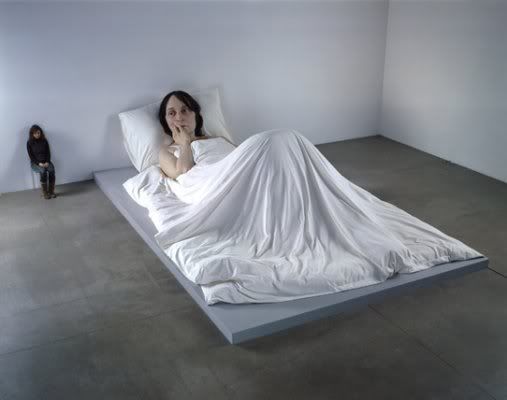
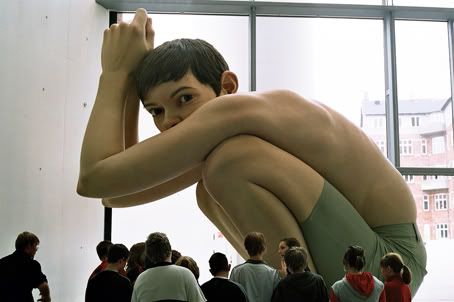
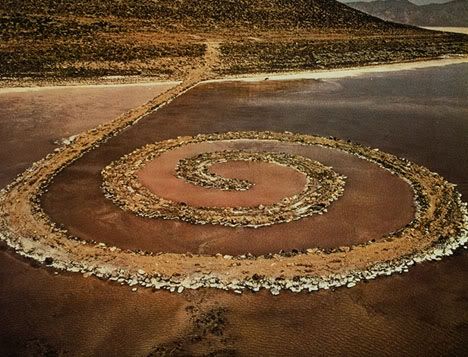
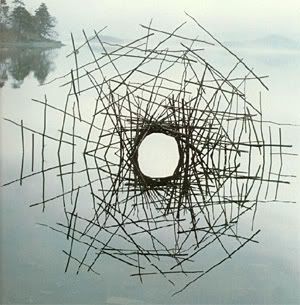
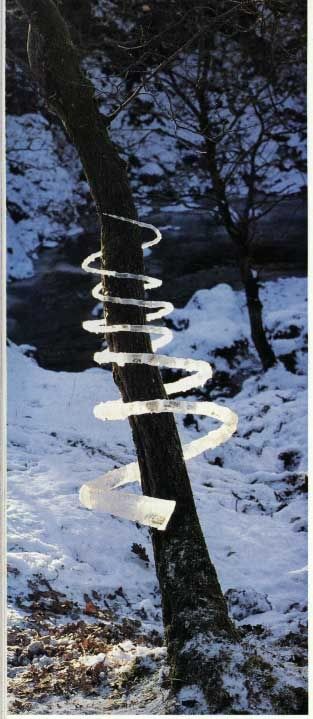
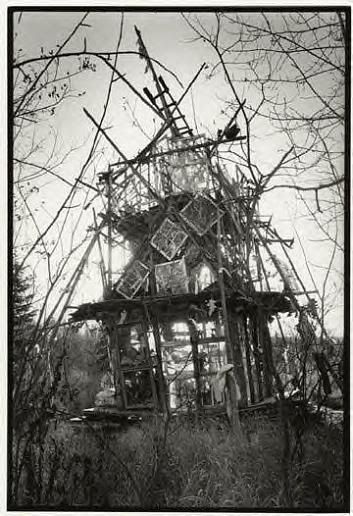
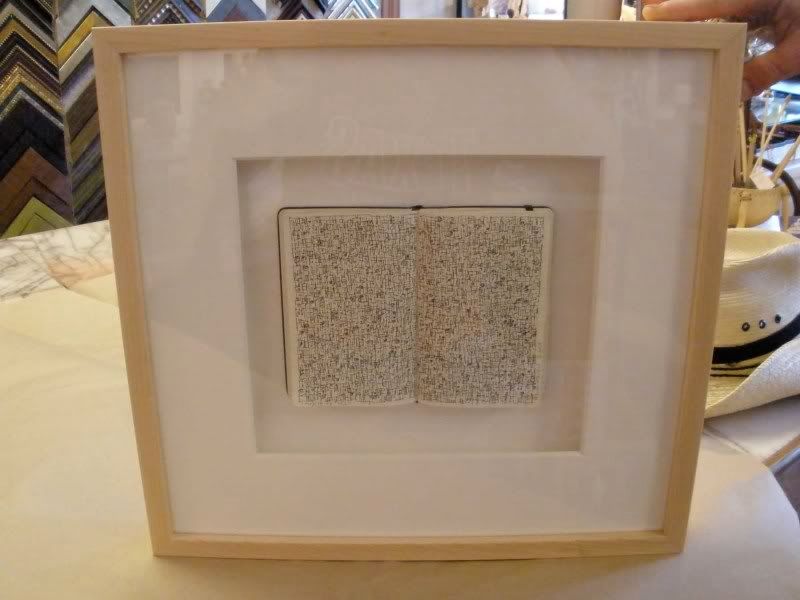
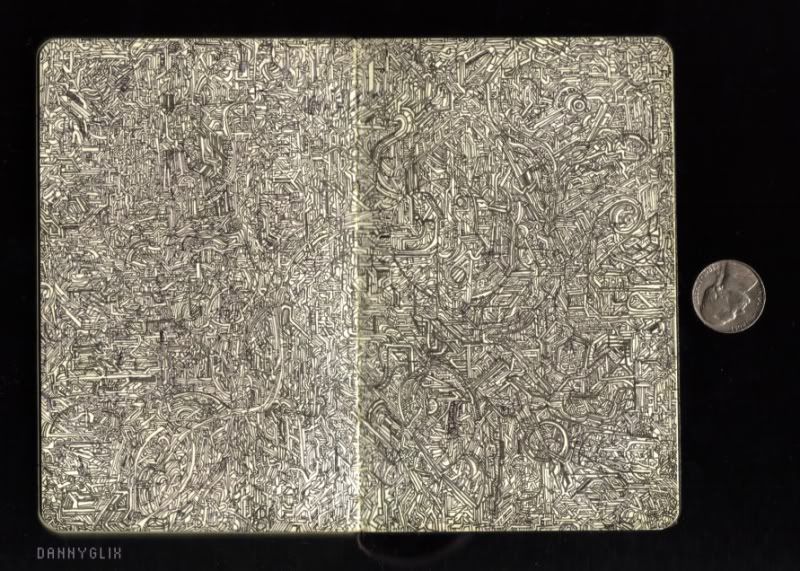


 Reply With Quote
Reply With Quote





